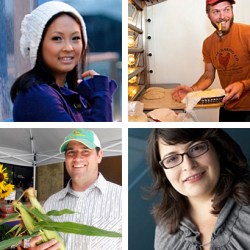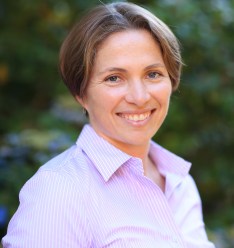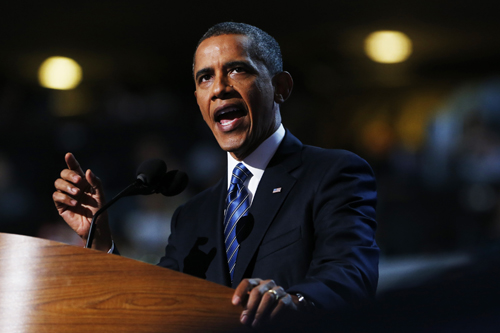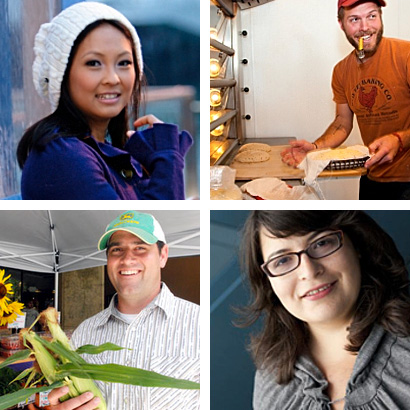 The same thought popped into Cynthia King’s head every time she walked by a vacant lot filled with dead grass, next to a church in her Berkeley, Calif., neighborhood: Why in the world aren’t they growing something there?
The same thought popped into Cynthia King’s head every time she walked by a vacant lot filled with dead grass, next to a church in her Berkeley, Calif., neighborhood: Why in the world aren’t they growing something there?
Soon she had the idea for an “edible churchyard,” reminiscent of Alice Waters’ Edible Schoolyard project. The concept evolved and is about to become a reality, as King plans to launch as many as six faith farms this year in collaboration with a local church and nonprofits. Congregations will have the final word on what to do with the food, but King now envisions a larger network of small urban farms being developed, including schools, homes, and nonprofits, where the produce grown in the gardens will be aggregated, distributed, and sold at a profit.
King says the idea may not have evolved if she hadn’t attended an accelerator program from Local Food Lab. The company helps people develop business plans for food and farm start-ups that are both financially sustainable and environmentally responsible, with a big-picture goal of becoming the de-facto global resource for local food entrepreneurship. (Similar to incubators, which can last years, accelerators are usually intensive, boot-camp-like). For a $2,500 fee, Local Food Lab participants receive six weeks of mentoring and feedback on food and farm concepts that address sustainability challenges in the food system. They finish with a complete business plan and a chance to pitch their ideas to a group of investors and stakeholders on the final day.

Cynthia King attended an accelerator to help her take her idea for edible church gardens to the next level.
“It was absolutely a catalyst,” King says of the program. “It turned my idea into something real and forced me to ask questions I wasn’t asking myself. It gave me the belief that I could do this.”
Local Food Lab founders Krysia Zajonc and Mateo Aguilar launched the company this summer with seed money from the Entrepreneurial Greenhouse Program at Columbia Business School (Zajonc graduated in May, Aguilar graduates next year).
The pair had previously launched three small food start-ups in Costa Rica, where they learned many lessons the hard way and found few resources aimed at food businesses.
With a background in tech — she was an early Facebook employee — Zajonc wants to help the sustainable food community tap into a network of like-minded food companies and become more business-savvy. That means creating financial projections and budgets, establishing their brands, and selling the concepts to investors who may be more accustomed to the larger profit margins found in other sectors, such as technology.
“As it becomes crystal clear that we need some major changes to our food system, we need to support these food and farm entrepreneurs regardless of how large the return on investment will be,” Zajonc says.
The pair started in Silicon Valley, but they’re thinking big. The for-profit benefit corporation will host a third accelerator program in Palo Alto, Calif., in February before bringing the program to New York next spring. They’d like to expand Local Food Lab to other major cities and offer resources in smaller cities and outside the U.S. Applicants hail from across the country, as well as from Chile, Mexico, and India.
“I would like it to go international and be the best place for people to find out about entrepreneurship and innovation in local food and get started,” Zajonc says.
This kind of small food business resource isn’t totally original, but isn’t exactly common either, says Caleb Zigas, executive director of La Cocina, a similar program in San Francisco that inspired Zajonc. Local Food Lab’s Palo Alto location has a kitchen that can be used to test recipes, but any food products that are to be sold to consumers must be made in a commercial kitchen. Many traditional food incubators are attached to commercial kitchen space as an asset, Zigas says, pointing to programs that offer some of the same types of services, such as the Appalachian Center for Economic Networks in Ohio, Rutgers Food Innovation Center in New Jersey, and Food Craft Institute in Oakland.
There are roughly 1,250 business incubators in the U.S., mostly serving a variety of sectors, says Linda Knopp, director of knowledge services at the National Business Incubation Association. Many offer intensive, accelerator-type programs like Local Food Lab’s, but less than 5 percent are dedicated to food.
Interest in food incubators is growing, Knopp says. La Cocina, which also offers consulting services for food incubators, receives a ton of requests for information.
The Bay Area is a hot spot for these programs — it’s a natural extension of the area’s burgeoning local and artisan food scene — but Zigas notes that many in cities like New York are also investing in incubation for food enterprise.
“That’s pretty big evidence that other people are thinking about it, that they see it as an economic driver,” he says.
Even with all the interest, Zigas says no one has hired La Cocina yet to help launch a food incubator. This may not be surprising considering the many challenges such a project often faces, such as a diverse food industry and access to capital, especially if commercial kitchen space is involved.
Raising capital is a constant challenge for food start-ups, too, along with growing these businesses and getting the product to the people, but there are also opportunities, especially if a gap in the marketplace can be filled.
Rachael Mamane noticed such a gap in 2010 while working for a livestock company: Some ranchers sold bones at farmers markets, others routed them for dog food production, but many didn’t bother getting them back from the slaughterhouse because they didn’t have the capacity to handle the weight.
Mamane launched Brooklyn Bouillon last year to turn lesser-used bones into stocks and demi-glace, adding value to small, regional farms by moving raw materials in bulk and offering a profit-sharing distribution feature. So far the model has been profitable for both the company and the farmers it serves.
Local Food Lab’s program helped Mamane reassess her business model; she’s now seeking investors to expand within New York and beyond.
“I was able to take what I originally saw as a concept,” she says, “scale it to a full size business, and then think even larger than that in terms of what the impact could be across the country, and still be local to different regions.”



